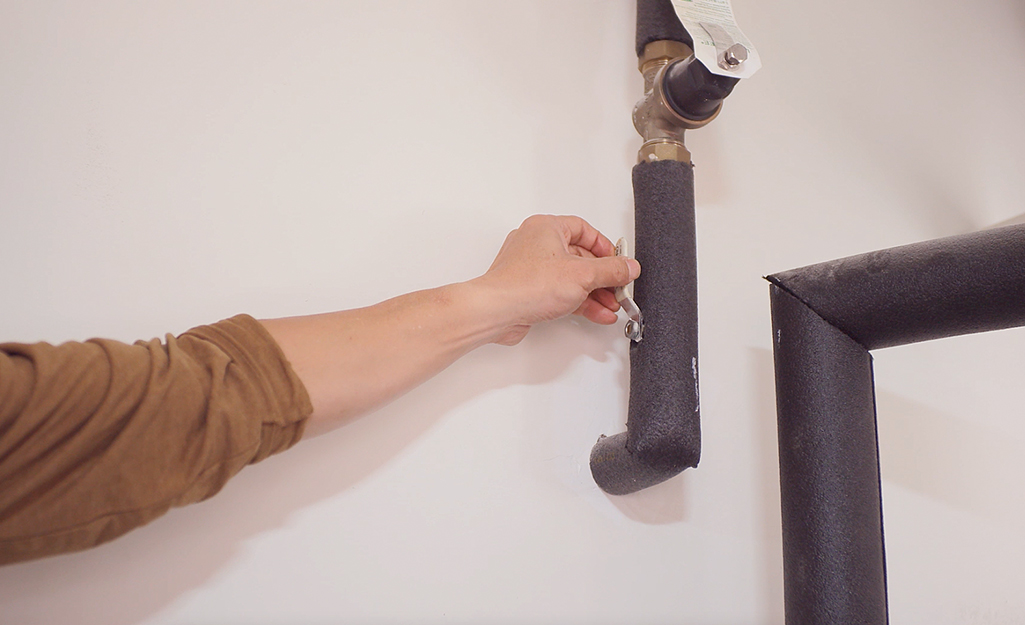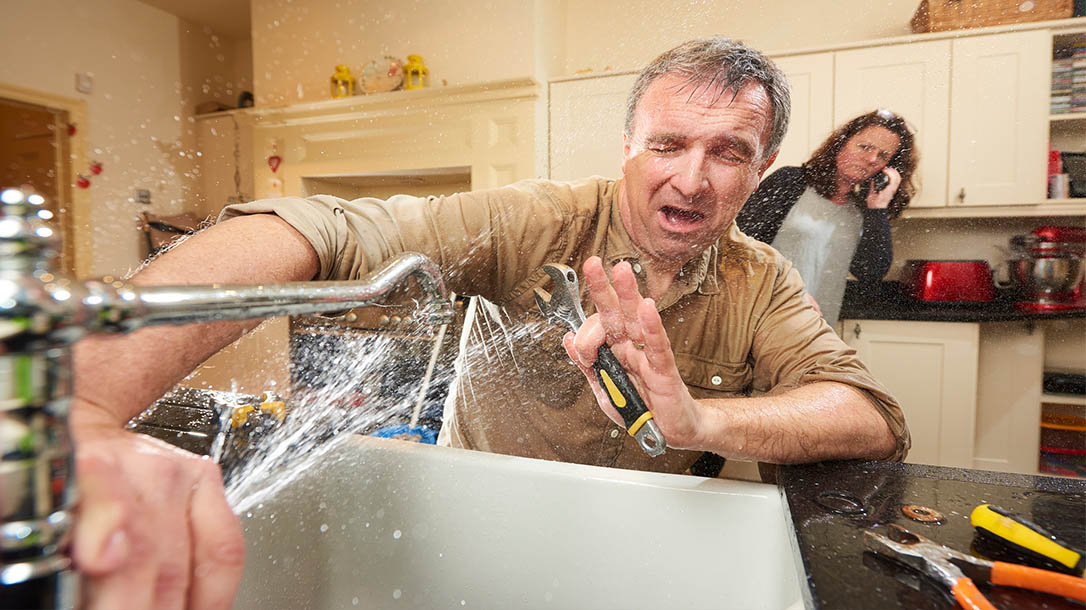What're your thoughts about Water Dripping from Faucet: Why and How to Fix?

Leaking faucets might seem like a small aggravation, yet their effect goes beyond just the aggravation of the noise. From wasting water to incurring unneeded financial prices and wellness dangers, ignoring a trickling faucet can result in numerous repercussions. In this article, we'll explore why it's essential to address this common home issue quickly and efficiently.
Wastage of Water
Environmental Influence
Trickling faucets contribute considerably to water wastefulness. According to the Epa (EPA), a single tap dripping at one drip per secondly can squander greater than 3,000 gallons of water annually. This not just stress water sources however additionally impacts ecosystems and wild animals dependent on them.
Step-by-Step Overview to Fixing a Dripping Faucet
Devices Required
Before trying to fix a leaking tap, collect the necessary devices, including an adjustable wrench, screwdrivers, replacement components (such as washing machines or cartridges), and plumber's tape.
Common Tap Issues and Their Solutions
Identify the sort of faucet and the details problem creating the drip. Typical troubles include worn-out washers, rusty valve seats, or faulty O-rings. Describe producer guidelines or on the internet tutorials for detailed assistance on repairs.
Financial Expenses
Raised Water Bills
Past the ecological impact, trickling taps can inflate water bills considerably. The accumulated waste gradually converts into higher energy expenses, which could have been prevented with prompt fixings.
Possible Residential Property Damages
In addition, long term trickling can bring about harm to components and surface areas bordering the tap. Water buildup can trigger discoloration, rust, and even structural concerns if left neglected, leading to extra repair prices.
Wellness Worries
Mold and Mildew Development
The continuous visibility of wetness from a dripping tap produces an optimal environment for mold and mildew and mildew growth. These fungi not just endanger interior air high quality however additionally posture wellness risks, particularly for individuals with respiratory conditions or allergies.
Waterborne Diseases
Stationary water in trickling taps can come to be a breeding place for germs and other pathogens, boosting the danger of waterborne illness. Contaminants such as Legionella bacteria grow in stationary water, potentially resulting in serious ailments when consumed or inhaled.
Do it yourself vs. Expert Repair
Advantages and disadvantages of DIY Fixing
While some might try to deal with a dripping tap themselves, do it yourself fixings include their own collection of obstacles. Without correct understanding and devices, DIY efforts can exacerbate the problem or bring about incomplete repair services, prolonging the issue.
Advantages of Hiring an Expert Plumber
Employing a specialist plumber ensures that the underlying reason for the leaking faucet is resolved properly. Plumbing technicians have the experience and tools to detect and fix tap concerns successfully, conserving time and lessening the danger of additional damage.
Environmental Responsibility
Specific Payment to Conservation
Taking responsibility for fixing trickling faucets aligns with more comprehensive initiatives towards water conservation and ecological sustainability. Every person's actions jointly make a substantial influence on protecting precious sources.
Sustainable Living Practices
By prioritizing punctual repair work and adopting water-saving routines, individuals contribute to lasting living practices that profit both present and future generations.
Safety nets
Regular Upkeep Tips
To prevent leaking faucets, do regular maintenance such as cleansing aerators, inspecting for leakages, and changing worn-out parts without delay. Additionally, think about mounting water-saving devices or upgrading to extra efficient fixtures.
Value of Prompt Services
Addressing leaking faucets as quickly as they're seen prevents additional water waste and prospective damages, inevitably conserving both water and cash in the future.
Influence On Home Worth
Understanding of Well-Maintained Residential Property
Preserving a property in good condition, including dealing with maintenance issues like trickling taps, enhances its regarded value and value amongst possible purchasers or tenants.
Impact on Resale Value
Residences with well-kept plumbing fixtures, consisting of taps, command higher resale worths in the real estate market. Resolving leaking taps can add to a positive perception throughout residential or commercial property examinations and settlements.
Verdict
Dealing with a trickling faucet exceeds plain convenience; it's a necessary step towards preserving water, decreasing monetary prices, and guarding health and wellness and property. Whether through DIY repair services or specialist aid, doing something about it to fix dripping faucets is a small yet impactful way to promote responsible stewardship of resources and contribute to a healthier, much more sustainable future.
How to Fix a Leaky Faucet: Step-by-Step Repair Guide
A leaky faucet may seem like a simple annoyance, but if it's not fixed promptly, that leak could cost hundreds to potentially thousands. From water damage to mold, mildew, and high water bills, even a tiny leak can be catastrophic if left unattended. Damage like this can even affect the overall value of your home, so it's important to take the right approach for leaky faucet repair. You may need the help of a plumber in some cases, but we've got a few tips you can try on how to fix a leaky faucet before calling the pros.
Four Faucet Types
When you're learning how to fix a leaky faucet, the first step is knowing what kind of faucet you're working with! There are four common types.
Cartridge Faucets
Cartridge faucets come in one- or two-handled varieties. In one-handled cartridge faucets, hot and cold water combines in a single cartridge. In the two-handled versions, hot and cold water are controlled separately and mixed in the faucet.
Ball Faucets
Ball faucets have a single lever you push up and down to adjust the pressure and rotate to change the temperature. A slotted metal ball controls the amount of water allowed into the spout.
Compression Washer Faucets
They're the oldest type of faucet, but they're still used in many homes — especially older ones. Compression faucets have two separate handles that, when turned, raise or lower the washer that seals a water valve. This valve stops water from flowing through the faucet when it is turned off.
Disc Faucets
Disc faucets rarely need to be repaired due to their maintenance-free design. The water flow is controlled by two discs — the upper one raises and lowers against a fixed lower disc, creating a watertight seal. If your disc faucet starts leaking, you may need to replace the seals or clean residue buildup from the inlets.
Fixing a Leaky Faucet
Step 1: Turn Off the Water
Whether you're learning how to fix a leaky bathtub faucet or how to fix a leaky kitchen faucet, always turn off the water supply to your working area when you're fixing a leak. The last thing you want is a flood added to your list of things to fix.
Look for the shutoff valves below your sink or around the tub and turn them clockwise to stop the water flow. If your faucet doesn't have shutoff valves, you may need to turn off the water for the whole house. Check to make sure it's off by turning the faucet on. If nothing comes out, you're ready to start the repair.
Step 2: Take Apart the Faucet
How you disassemble your faucet depends on the type of fixture you have. You can use a flathead screwdriver to remove the caps on top of the handle or handles for cartridge and compression faucets. Inside, you should see handle screws. Unscrew these with a screwdriver to remove the handle.
Disc- and ball-style faucets will typically have an inlet screw near the handle, and removing that will reveal the interior of the faucet.
Detach the Valve Stem
For cartridge- and compression-style faucets, you'll see the inner valve stem or cartridge once you remove the faucet handles. If you have a compression faucet, unscrew the brass valve stem. If you have a cartridge faucet, pull out the cartridge. If your cartridge has been in place for a while, it may require some tools or extra force to remove it due to mineral deposits.
Examine and Replace Parts
Once you've removed the parts, check them out to confirm what needs to be replaced. You may see corroded rubber washers, O-rings, stems, or cartridges. On a ball-style faucet, check the seats and springs for damage.
If you need to repair a leaky disc faucet, check the inlet and seals on the lower disc.
Once you determine what parts must be replaced, visit your local hardware store. Bring the damaged parts with you to ensure you can purchase the correct components to replace them.
Clean Valves and Faucet Cavity
If you've removed a stem or cartridge, you may notice mineral buildup in the faucet's threads. Use white vinegar to clean the valve seat by soaking it for a few minutes, then scrub it away with a soft toothbrush and rinse with warm water. You can also clean the interior of the faucet in the same way.
Reassemble the Faucet
Once your faucet is cleaned and the required parts have been replaced, it's time to reassemble it. Put the pieces back together and slowly turn the water supply back on. Doing this slowly is crucial because too much initial water pressure can damage the new hardware you've just installed.
https://homewarranty.firstam.com/blog/how-to-fix-leaky-faucet

Hopefully you enjoyed reading our topic on Why Are My Faucets Dripping (And Can I Fix It Myself)?. Thank you for taking the time to browse our article. Those who appreciated our blog post please be sure to share it. We cherish reading our article about .